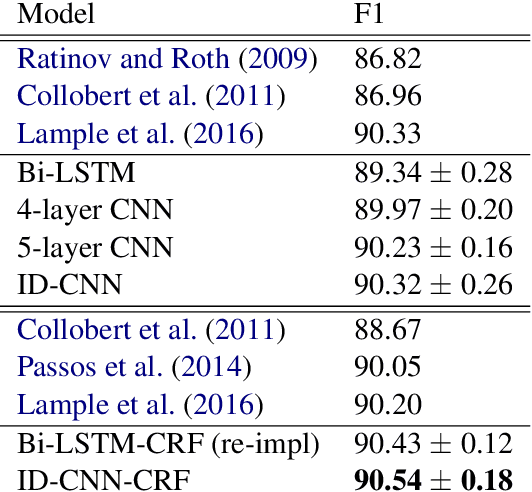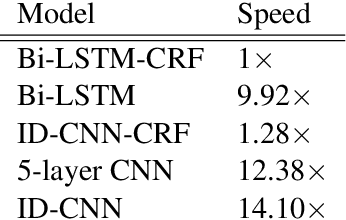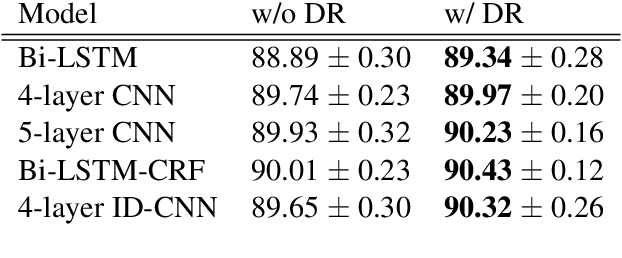Fast and Accurate Entity Recognition with Iterated Dilated Convolutions
Paper and Code
Jul 22, 2017



Today when many practitioners run basic NLP on the entire web and large-volume traffic, faster methods are paramount to saving time and energy costs. Recent advances in GPU hardware have led to the emergence of bi-directional LSTMs as a standard method for obtaining per-token vector representations serving as input to labeling tasks such as NER (often followed by prediction in a linear-chain CRF). Though expressive and accurate, these models fail to fully exploit GPU parallelism, limiting their computational efficiency. This paper proposes a faster alternative to Bi-LSTMs for NER: Iterated Dilated Convolutional Neural Networks (ID-CNNs), which have better capacity than traditional CNNs for large context and structured prediction. Unlike LSTMs whose sequential processing on sentences of length N requires O(N) time even in the face of parallelism, ID-CNNs permit fixed-depth convolutions to run in parallel across entire documents. We describe a distinct combination of network structure, parameter sharing and training procedures that enable dramatic 14-20x test-time speedups while retaining accuracy comparable to the Bi-LSTM-CRF. Moreover, ID-CNNs trained to aggregate context from the entire document are even more accurate while maintaining 8x faster test time speeds.
 Add to Chrome
Add to Chrome Add to Firefox
Add to Firefox Add to Edge
Add to Edge